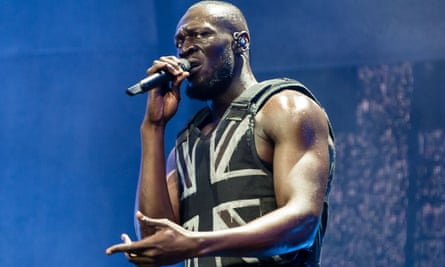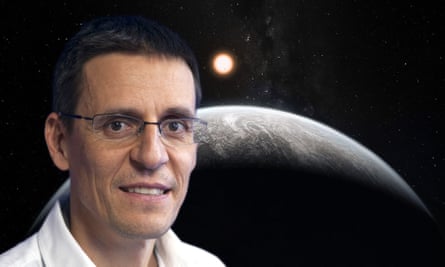Ellen DeGeneres is nice, isn’t she? She dances funny. She’s got lovely twinkly eyes and she’s made it OK for grans everywhere to love lesbians, if they’re like Ellen and are nice and do dancing. Last week, the comedian and talkshow host used a segment of her show to perform a four-minute monologue on the importance of being friends with people whose views do not always resemble our own, especially when it comes to awkward topics such as war crimes.
She was moved to sermonise on this topic after being criticised on Twitter. While watching the Dallas Cowboys, she was photographed laughing along with the man sitting next to her, who happened to be George W Bush. “People were upset,” she explained. “They thought, why is a gay Hollywood liberal sitting next to a conservative Republican president?” Nobody pointed out the obvious – “because you’re both so rich and powerful that the team’s owner invited you” – but nobody shouted: “Guantánam-oh no she didn’t” either, so opportunities were missed.
The monologue continued to paint this friendship as some kind of breaking down of barriers. She went so far as to quote one person who declared that it “makes me have faith in America again”. She explained that she and Bush were friends. The audience cheered. For this barnstorming defence of pleasantries sans frontieres, she won the giddy back-slapping support of other celebrities, with the notable exception of Mark Ruffalo, the Hulk, who in my eyes really earned his status as a superhero.
If DeGeneres can be friends with a man who was active in his support for Brett Kavanaugh’s appointment to the supreme court, who in 2004 called for a constitutional amendment to ban same-sex marriage, whose sole redeeming quality is that he is not Donald Trump, then that is quite something. To be friends with a man whose legacy is one of war, torture and death on an unimaginable scale means her capacity for niceness is not so much bridging the gap as it is pathologically uncritical.
Of course we need people who don’t agree with our every belief and opinion, now, more than ever, but that is a separate point entirely. This is not like having a heated debate with a relative about Brexit, nor is it right to use it as a teachable moment, a symbol of what can be achieved when we’re all civil to each other. Her ability to see the good in Bush is far from an act of moral superiority and to claim otherwise is, at best, wilfully naive. If we’re being nice about it.
Stormzy: who says that grime doesn’t pay?

If being on the cover of Time magazine was ever devalued by the knowledge that Donald Trump simply mocked up a favourable one with which to decorate some of his golf courses (with the gripping and punctuationally-challenged headline The Apprentice is a television smash!”), like a Moonpig birthday card, then Stormzy has arrived to make sure everyone knows that it matters again. The “ambassador for grime” and south London MC is one of the magazine’s Next Generation Leaders, along with Greta Thunberg and Rosalia, among others. “I am deeply flawed and still learning how to be a man... but... I have purpose. And my purpose has led me here,” he wrote, posting the cover to Instagram.
In the accompanying interview, by Reni Eddo-Lodge, Stormzy discusses his commitment to fighting “this historical thing of letting one black person in at a time”, explaining why he brought other grime artists on to the stage during his incendiary Glastonbury headlining slot, why he launched Merky Books and its accompanying annual prize to bring on young black writers and why he established the Stormzy Scholarship, to fund two black students’ fees and living costs at Cambridge University.
This initiative has been credited with a rise in the number of black British students studying at Cambridge. The university reported that for the first time, black students made up more than 3% of new undergraduates. The numbers are still impossibly small, but it is an improvement – 91 black students were admitted, up from 61 in 2018. More black students are taking part in outreach programmes, which the university also credits to the high profile of Stormzy’s involvement. It has been described as “the Stormzy effect”. Not only did he appear on the cover of Time, then, but he gave his name to an effect. That is a good week’s work.
Didier Queloz, a Nobel prize for chutzpah

Congratulations to Professor Didier Queloz, the Cambridge University astronomer who shared the Nobel prize for physics with James Peebles and Michel Mayor for their work on the evolution of the universe and the discovery of the first planet outside our solar system in 1995.
Their extraordinary achievements will hover frustratingly close to the tip of my tongue during a future round of University Challenge, only to retreat like a frightened mouse at the crucial moment, and that is why they are Nobel prize winners and I can barely get the contemporary music questions right.
Queloz revealed that he was having a bad day when the Nobel news came through. His bike had a puncture and he was sitting through a difficult fundraising meeting about a new project. Brilliantly, he ignored a call from the committee, because he did not recognise the number. A friend had to tell him the news. If I’ve learned anything from this, it’s to no longer feel guilty about not answering the phone. Surely it’s fine to ignore a call that might be a machine saying they understand you’ve been in a recent accident, if you can reject a call from the committee and they still won’t take your Nobel prize away.

